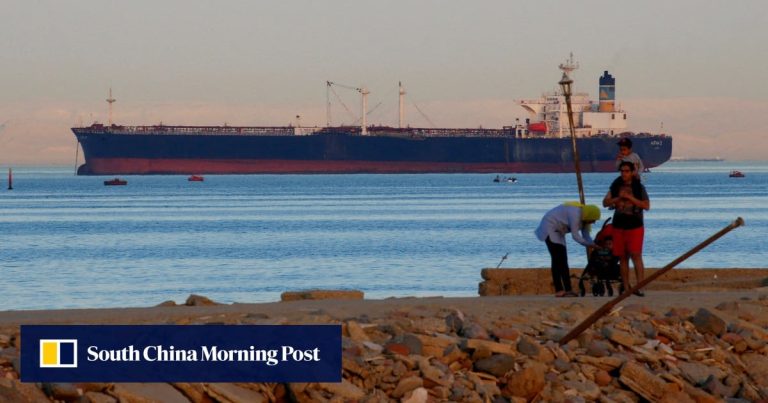Insurgent attacks in the Red Sea and soaring freight costs are making the global oil market increasingly local, making supplies from countries closer to home more attractive.
A slowdown in tanker traffic through the Suez Canal has spurred the start of a split, with one trading region centered on the Atlantic basin and including the North Sea and Mediterranean Sea, and the other trading region centered on the Persian Gulf, Indian Ocean, and East Including Asia.
Oil still moves between these regions via long and expensive journeys around the southern tip of Africa, but recent buying patterns indicate a disconnect.
Asian exporters face further Red Sea risks following US-led Houthi offensive
Asian exporters face further Red Sea risks following US-led Houthi offensive
Traders said some refiners across Europe held off on buying Iraqi Basra crude last month, while buyers from the continent snapped up cargoes from the North Sea and Guyana. In Asia, a surge in demand for Abu Dhabi's Murban crude sent spot prices soaring in mid-January, and the flow of crude oil from Kazakhstan to Asia has sharply declined.
Meanwhile, crude oil loadings from the U.S. to Asia fell by more than a third last month from December, according to Kpler ship tracking data.
This fragmentation is not permanent, but it currently makes it more difficult for import-dependent countries such as India and South Korea to diversify their oil supply sources. For refiners, this could limit their flexibility to respond to rapidly changing market trends, ultimately hurting margins.
“The shift to easier-to-distribute cargo makes commercial sense and will continue as long as the Red Sea disruption drives up freight rates,” said Victor Katona, chief oil analyst at data analysis firm Kpler. Stated. “Choosing between security of supply and maximizing profits is a difficult balancing act.”
Malaysians will pay more for gourmet food as Red Sea crisis raises inflation risks
Malaysians will pay more for gourmet food as Red Sea crisis raises inflation risks
Kupler said in a note published on January 30 that oil tanker traffic through the Suez Canal was down 23% last month compared to November. The decline was even more pronounced for liquefied petroleum gas and liquefied natural gas, with liquefied petroleum gas and liquefied natural gas decreasing by 65% and 73% per year. cents each.
In product markets, diesel and jet fuel flows from India and the Middle East to Europe, and European fuel oil and naphtha flows to Asia are most affected. Asian prices for naphtha, a petrochemical feedstock, hit their highest level in nearly two years last week on concerns that sourcing from Europe will become more difficult.
Read more: Red Sea shipping disruption sends widespread economic shock
The impact of the Red Sea attacks has spilled over into oil prices through higher transport costs, encouraging refiners to move locally where possible. Prices for Suezmax crude oil tankers heading from the Middle East to northwestern Europe have jumped by about half since mid-December, Kupler said. Brent crude oil, the global benchmark, rose about 8% over the same period.

Meanwhile, the cost of shipping crude oil from the U.S. to Asia, where production is surging, rose by more than $2 a barrel in three weeks in January, market watchers said.
“Diversification is still possible, but it will come at a higher price,” said Giovanni Staunovo, a commodities analyst at UBS Group AG. “If that doesn't get passed on to the end consumer, it's going to put pressure on refinery margins.”
The situation in the Red Sea is not expected to lead to a long-term readjustment of oil flows, but the dispute is also difficult to resolve in the short term.
Rather, there is a significant risk of further disruption, especially after the Houthis attacked a Russian fuel tanker late last month. The attack was notable because Iran-backed militants had previously indicated that Russian and Chinese vessels would not be targeted.
“Geopolitics is not good for trade,” said Adi Imsilovic, director of consultancy Surrey Clean Energy. “If I had been a buyer, I would have held back. It's a tough time for refiners, especially those in Asia, and they need to be more flexible.”


